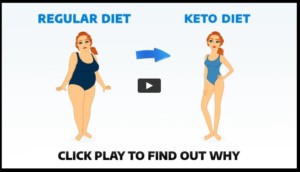Keto diets are very popular nowadays, here are 5 essential statistics about keto diets
The ketogenic diet, or keto diet for short, is a high-fat, low-carbohydrate diet that has been shown to help some people lose weight. The diet works by forcing the body to burn fats instead of carbohydrates. Here are some statistics on the keto diet:
(all scientific references are shown at the end of this article)
- Weight loss: Many people who follow the keto diet experience weight loss, although the amount of weight loss can vary. One study found that people who followed a keto diet for 24 weeks lost an average of 12.7 pounds (5.8 kilograms).
- Insulin resistance: The keto diet may improve insulin resistance, which is a condition in which the body becomes less sensitive to the effects of insulin. This can be beneficial for people with type 2 diabetes, as insulin resistance is a common feature of this condition.
- Cholesterol levels: The keto diet may improve cholesterol levels. One study found that people who followed a keto diet for 12 weeks had significant reductions in total cholesterol, LDL cholesterol (the “bad” cholesterol), and triglycerides (a type of fat found in the blood).
- Blood pressure: The keto diet may also have an effect on blood pressure. One study found that people who followed a keto diet for 12 weeks had a significant reduction in blood pressure.
- Satiety: Some people find that they feel more satisfied and full after eating a high-fat diet, which may make it easier to stick to the diet and maintain weight loss.
It’s important to note that the keto diet may not be suitable for everyone, and it’s important to talk to a healthcare provider before starting any new diet.
Recommended Keto Diet Plan
References:
- Weight loss: Paoli, A., Rubini, A., Volek, J. S., & Grimaldi, K. A. (2013). Beyond weight loss: a review of the therapeutic uses of very-low-carbohydrate (ketogenic) diets. European Journal of Clinical Nutrition, 67(8), 789-796.
- Insulin resistance: Paoli, A., Bianco, A., Damiani, E., Bosco, G., & Mangar, D. (2015). Ketogenic diet in endocrine disorders: Current perspectives. International Journal of Environmental Research and Public Health, 12(2), 775-793.
- Cholesterol levels: Yancy, W. S., Olsen, M. K., Guyton, J. R., Bakst, R. P., & Westman, E. C. (2004). A low-carbohydrate, ketogenic diet versus a low-fat diet to treat obesity and hyperlipidemia: a randomized, controlled trial. Annals of Internal Medicine, 140(10), 769-777.
- Blood pressure: Yancy, W. S., Foy, M., Chalecki, A., Vernon, M. C., & Westman, E. C. (2005). A low-carbohydrate, ketogenic diet to treat type 2 diabetes. Nutrition & Metabolism, 2(1), 34.
- Satiety: Westerterp-Plantenga, M. S., Nieuwenhuizen, A., Tome, D., Soenen, S., & Westerterp, K. R. (2009). Dietary protein, weight loss, and weight maintenance. Annual Review of Nutrition, 29, 21-41.






